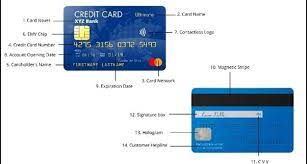The last 4 digits of your debit card are part of your card number and can potentially be misused if they fall into the wrong hands. However, there are also limitations to what information criminals can access with just these digits.

Risks of sharing last 4 debit card digits
While not as risky as sharing your full card number, divulging your last 4 debit card digits does carry some potential threats you should be aware of. Here are some of the ways criminals can exploit knowledge of the final portion of your card number:
- Partial card data access: The last 4 digits may allow scammers to guess other debit card numbers more easily through a brute force attack.
- Phishing risks: Criminals could use your last 4 digits to make their phone, email, or text phishing scams seem more legitimate.
- Pre-qualification risks: Sharing the last 4 on applications can let companies pull your credit report without proper authorization.
- Potential database hacking: If retailers store your full card number, hackers with your last 4 digits may more easily single out your number in stolen financial data.
However, while risks exist, the last 4 digits alone cannot enable thieves to make fraudulent purchases, withdraw cash, or clone your physical debit card.
What criminals can’t do with only the last 4 digits
Though it’s still recommended to protect your full debit card number, sharing only your last 4 digits does limit what scammers can actually do with that information. Without additional data like your expiration date or CVV code, here is what criminals can’t accomplish with the last 4:
- Make purchases: Your full card number, exp date, and CVV code is required by retailers to process payments.
- Access bank account funds: Withdrawing cash also requires your whole card number at minimum to be authenticated.
- Clone your physical card: All the data on your card chip or magnetic stripe is needed to successfully counterfeit it.
- Obtain account details: The last 4 digits reveal nothing about your name, card network, bank, balances or history.
So while it’s ideal to keep all debit card digits private, disclosing only your last 4 does create barriers for financial fraud in many instances.
Best practices for safely sharing last 4 card digits
If you do need to share your last 4 card digits – such as when saving debit cards to an account or verifying your identity over the phone – here are some tips for reducing risks:
- Only share when required for legitimate purposes so unnecessary exposure is avoided.
- Take security precautions like enabling fraud alerts to monitor that no suspicious activity occurs after sharing.
- Change debit card details if you do suspect misuse from providing your last 4 digits to an untrustworthy recipient.
- Use virtual card numbers from your bank which typically have different last 4 numbers than your physical card.
Trustworthy reasons businesses may request your last 4
There are some valid reasons why trusted businesses may ask for your last 4 debit card digits when providing their services to you:
Account identity verification
- Phone support services confirming your identity
- Rideshares accessing your trip receipts
- Subscription fitness apps charging your card monthly
Card security compliance
- Merchants verifying you own the payment card
- Retailers validating your ID during returns
- Hotels authorizing incidental room charges
Financial service enrollment
- Banks adding valid debit cards to your online profile
- Lenders ensuring you have an active payment method
- Investing apps linking bank accounts to your trading account
Reputable companies request card data, including your last 4 digits, in a secure manner and protect that information with encryption technology. Exercising caution when sharing any card details can help prevent fraud from occurring.
Key takeaway
While protecting your full debit card number is still extremely important for security, disclosing only your last 4 digits does limit what scammers can do with that information alone. Without additional data like expiration dates or CVV codes, fraudsters cannot successfully make purchases or clone your card physically. Still, it’s wise to be cautious when sharing to avoid enabling partial brute force guesses or giving phishing scams an air of added legitimacy with those 4 digits. Overall though, reputable businesses gather your last 4 for legitimate verification processes when needed to ensure smooth customer experiences.
Conclusion
Knowing what the last 4 debit card digits can and can’t enable criminals to accomplish better allows you to evaluate risks when occasionally needing to provide those numbers. Avoid freely publicizing them but don’t excessively self-censor either if required by trusted entities for valid purposes. Implementing precautions around sharing while utilizing bank security offerings prudently guards against potential fraud as well. With greater insight on the limitations of the last 4 digits alone, consumers can confidently exchange them when truly facilitating helpful services without fully compromising critical financial data in the process.